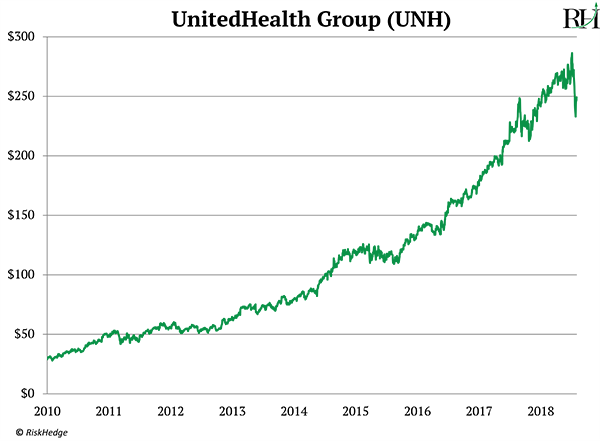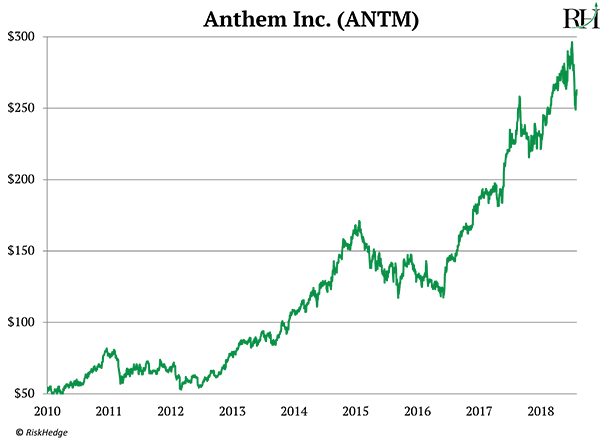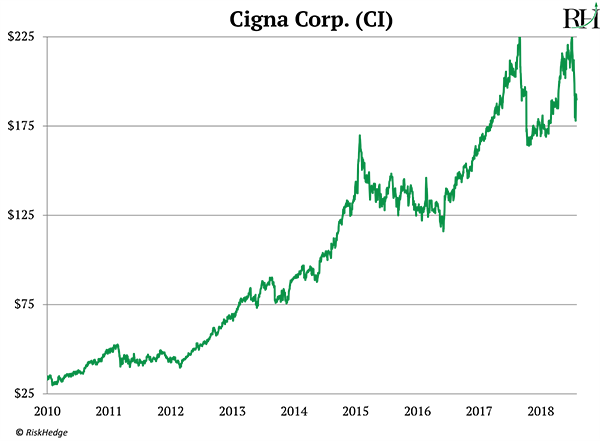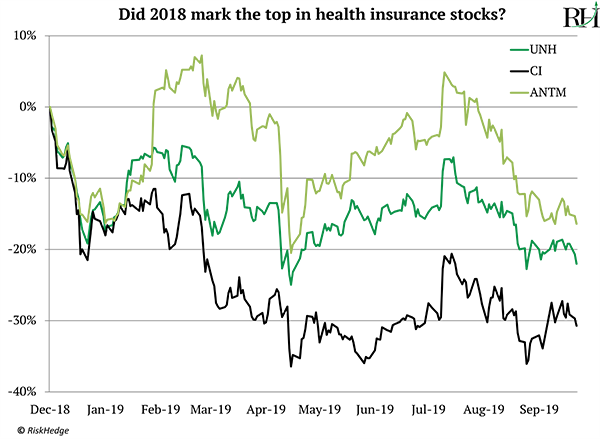


In praise of Bolton (See 1 below.)
And:
While the zealous nut case in the Democrats Party are at it they should impeach Barr. Might as well make complete fools of yourselves. (See 1a below.)
++++++++++++++++++++++++++++++++++++++++++++++++++++++++++++++++
Let the free market, not government, solve the problem (See 2 below.)
+++++++++++++++++++++++++++++++++++++++++++++++++++++++++++++++++
Worth supporting:
Judicial Watch is your indispensable, independent watchdog in Washington and we are currently in court on a host of critical battlefronts including:
- Exposing the unlawful Deep State conspiracy to drive President Trump from office;
- Challenging states across the country over failures to clean their voting lists (we won an historic success in California earlier this year);
- Fighting to end San Francisco’s deadly sanctuary policy (we are scheduled to go to trial in February);
- Successfully demanding accountability from Hillary Clinton for her crimes through court-ordered discovery.
++++++++++++++++++++++++++++++++++++++++++++++++++++++++++++++++
Dick
++++++++++++++++++++++++++++++++++++++++++++++++++++++++++++++++++++++
1)Losing Bolton Increases the Chance of War
JNS.org – After US National Security Advisor John Bolton resigned (or was fired, depending on who you ask), Sen. Rand Paul (R-Ky.) said that Bolton was “naive” and his departure would “decrease the chance of war.” Sen. Paul is wrong. Bolton is realistic, not “naive.” Indeed, this was among the reasons cited by President Donald Trump for why he hired Bolton.
Without Bolton’s sage advice, Trump is likely to find himself at a distinct disadvantage in understanding how our enemies behave. For example, meeting or negotiating with evil regimes is understood by them as a sign of weakness, potentially prolonging a war or leading to an appeasement strategy to end a war quickly (as sometimes happens in the lead-up to a domestic election).
Recall that World War II could have been avoided had England and its European allies heeded the warnings of Winston Churchill and dealt decisively with Germany as it was building a massive war machine in violation of the Versailles Treaty. Had they done so, some 60 million lives could have been saved.
Let’s look at four of the most complicated national security and foreign policy dilemmas facing America right now:
• The Taliban: America should treat the Taliban in Afghanistan as the enemy it is. The Taliban must be bankrupted or destroyed. No negotiations.
• Islamic State and Al Qaeda: Similarly, we should be fighting these and all Islamist terrorist gangs militarily, not engaging in pointless negotiations. This does not necessarily mean that America should engage in this war alone; ideally we should be working with 20-30 local allies to wipe out these non-state terrorist organizations.
• Iran: The world’s #1 Islamist terror-sponsoring nation should be treated like ISIS, not like China. We have nothing in common with the Iran’s theocratic totalitarian rulers, who have promised to take over the world and kill everyone in the United States. Recall that Iran’s “supreme leader” led public chants of “Death to America!” as his agents were “negotiating” the nuclear “deal” with the Obama administration.
Most recently, Iran or its terrorist proxies in Yemen launched a massive strike on Saudi Arabian oil facilities, which caused fuel costs to soar by 10 percent worldwide. The United States must severely punish Iran’s military, and unmercifully bankrupt the country over the next 12 months. There is no middle ground. In any case, no negotiations.
• China: For now, China is more of a competitor than an enemy, run by very rational and determined leaders. A trade deal is quite doable, but cannot be consummated quickly, as there are numerous issues that must be addressed. A good chance exists that a reasonable deal can be negotiated. (This may well change, as China continues building its massive war-fighting capability, including a blue-water navy, capable of challenging the United States on every front.)
Without advisers like Bolton, the United States is likely to choose inaction, and wars will drag on forever. We certainly hope the remaining national security advisers quickly fill the void created by Bolton’s departure. Right now, the threat of war is rising rapidly, whether our political leaders like it or not. Inaction is not in America’s best interest.
Ken Abramowitz is the president and founder of SaveTheWest.
1a)
Do Republicans See the Strategy to Discredit the Barr Investigation? By Andrew C. McCarthy
Posted By Ruth King
Democrats and their media friends are attempting to paint the Barr investigation, in the public mind, as a corrupt extension of a down-and-dirty Trump 2020 political campaign.
In the weekend column, I observed the media-Democrat complex’s politicized reporting of the July 25 conversation between President Trump and his Ukrainian counterpart:
Trump detractors hyper-focus on the president’s request that President Zelensky provide Attorney General Barr with any information Ukraine might have about Biden twisting arms to quash an investigation involving his son’s cashing in on dad’s influence. I say “hyper-focus” because there was a lot more to it than that. Long before the conversation came around to the Biden topic, the “favor” that Trump asked for was Zelensky’s assistance in Barr’s ongoing investigation of the genesis of the Trump-Russia investigation.
Virtually all mainstream-media reporting and Democratic commentary on the conversation now fits this pattern. It is noted that Trump, immediately after the “quid pro quo” set-up — “I would like you to do us a favor though” — invoked the attorney general, the nation’s top federal law-enforcement official. Studiously omitted is the context of this invocation: a wholly appropriate request by the president, to the head of state of a country in possession of relevant evidence, for cooperation with a legitimate investigation being conducted by our country’s Justice Department.
Instead, the coverage skips a few hundred words. It cuts directly to Trump’s suggestion that Zelensky look into whether there was any impropriety in former vice president Biden’s having purportedly “stopped the prosecution” that might have arisen out of a Ukrainian investigation involving his son.
The strategy here is obvious. The Democrats and their note-takers would like the public to believe that Barr’s investigation is an adjunct of the Trump 2020 campaign — and a grossly improper one at that. The misimpression they seek to create is that Barr is putting the nation’s law-enforcement powers in the service of Trump’s reelection campaign, in the absence of any public interest. The hope is that this will delegitimize not only any information that emerges from Ukraine but the whole of the Justice Department’s investigation of intelligence and law-enforcement abuses of power attendant to the 2016 election.
I’ll repeat what I elaborated over the weekend:
No matter how much Democrats seek to discredit that probe and the AG overseeing it, it is a legitimate investigation conducted by the United States Department of Justice, which has prosecutors assigned and grand jury subpoena power. It is examining questionable Justice Department and FBI conduct. It is considering whether irregularities rise to the level of crimes. It will be essential to Congress’s consideration of whether laws need to be enacted or modified to insulate our election campaigns from politicized use of the government’s counterintelligence and law-enforcement powers.
The hypocrisy here is breathtaking, even by Adam Schiff standards.
Many of us did not like the Mueller investigation. I repeatedly contended that the appointment of a special counsel was inappropriate for several reasons. The pertinent regulations require a basis for believing a crime predicating a criminal investigation or prosecution has occurred, and there was none in the case of President Trump. The regs similarly require a conflict of interest based on the predicate crime, and since there was no such predicate, there was no conflict requiring the Justice Department to appoint an outside lawyer. The FBI and Justice Department had announced that they were conducting a counterintelligence
Of course, the media-Democrat complex became apoplectic at any suggestion of impropriety in Mueller’s appointment. On pain of ostracism, its legitimacy was never to be questioned. Case closed.
Naturally, Trump’s opponents did not want to articulate the actual, nakedly political reason for their defense of Mueller — namely, that he was the best hope for bringing down Trump’s presidency. They thus couched their defense in legal terms. The special-counsel regs make clear that the Justice Department’s failure to adhere to them is not actionable. Consequently, as long as DOJ had a plausible basis to investigate some of their subjects — such as Paul Manafort, who had committed crimes unrelated to Russian “collusion,” and George Papadopoulos, who hadn’t “colluded” but had allegedly lied to investigators — the then–acting attorney general, Rod Rosenstein, undeniably had the power to bring a special counsel in from outside the Justice Department to conduct the investigation.
Regardless of how blatantly politicized the Mueller probe appeared to be, then, it was an official, legitimate federal investigation — one that was commissioned by the Justice Department, which lawfully resorted to the powers of the grand jury, and the obstruction of which (or lying to which) was actionable.
Now the shoe is on the other foot.
Trump opponents do not like Barr’s investigation of the genesis and conduct of the Russia investigation. It is, nonetheless, a proper exercise of the Justice Department’s lawful authority. Indeed, contrary to the Mueller investigation, there are no questions about the propriety of the prosecutor’s assignment. John Durham, the U.S. Attorney for Connecticut assigned by Barr, is not a special counsel brought in from outside. He is an in-house Justice Department lawyer, authorized to examine potential law violations. There is no question, moreover, that the attorney general has the authority to investigate possible malfeasance or misfeasance by the Justice Department — if nothing else, for the purpose of preventing its repetition by improving internal guidelines or even asking Congress for curative legislation.
It is a commonplace for our government to seek assistance from foreign governments in ongoing federal investigations. In fact, Washington and Kyiv entered a mutual legal assistance treaty in 1998. In approving this U.S.–Ukraine “MLAT” in 2000, the Senate noted that the original purpose of such treaties was “to permit the United States to obtain evidence from foreign jurisdictions in a form admissible in American courts.” As chief executive, it is not at all unusual for a president to encourage another country’s assistance in Justice Department investigations.
Contrary to the president’s public insistence, his conversation with President Zelensky was not “perfect.” It was foolish to raise questions about the Bidens.
As I pointed out in the column, there may very well be a basis for the Justice Department to scrutinize Hunter Biden’s cashing in on his father’s political influence, under the Foreign Corrupt Practices Act and perhaps other federal statutes. But the president should leave it to the Justice Department to determine whether there are grounds to look into the Bidens’ activities, including in the context of the Obama administration’s dealings with Ukrainian authorities in the run-up to the 2016 election. At present, though, there is no reason to believe that when Trump spoke with Zelensky, there was any pending Justice Department investigation focused on Hunter Biden’s business transactions with foreign interests. Viewed in isolation, the president’s request for a Ukrainian inquiry that could damage a political rival appears abusive. It is not serious enough to be an impeachable offense, but it is behavior that most voters, regardless of party or ideology, are apt to find unseemly.
Still, the Biden portion of the conversation did not happen in isolation. It had a context. It was a subordinate strand of a perfectly appropriate executive-branch request for assistance in a completely legitimate Justice Department investigation into government misconduct that is potentially serious.
Democrats and their media friends are attempting to bleach away that context and paint the Barr investigation, in the public mind, as a corrupt extension of a down-and-dirty Trump 2020 political campaign. Republicans are not going to respond effectively unless they grasp this strategy.
++++++++++++++++++++++++++++++++++++++++++++++++++++++++++++++
2) Walmart Is Quietly Turning Healthcare on Its Head
By Stephen McBride
Image: Walmart Health, Dallas, Georgia
Was Obamacare good for the average American family? Before you answer, look at this chart...
It shows the stock performance of UnitedHealth [ (UNH[NYE] - $215.39 1.36 (0.63%) Trade )], America’s biggest health insurance company, since 2010:

Now here’s Anthem [ (ANTM[NYE] - $237.82 0.08 (0.03%) Trade )], America’s second-largest health insurer:

And here’s Cigna [ (CI[NYE] - $149.52 0.28 (0.19%) Trade )], America’s third-largest health insurance stock:

Since March 2010, the S&P 500 has gained 154%. These three rocketed 589%, 286%, and 332%.
Talk about a boom!
Obamacare Was the Greatest Thing Ever to Happen to Health Insurance Stocks
In 2009—the year before Obamacare—UnitedHealth turned a $3.8 billion profit. This year it’s on track to rake in $13.5 billion.
You might expect to see a 3.5X surge in profits in a cutting-edge tech stock. But in a tired old industry like health insurance? Since 2009, UnitedHealth’s profits have ballooned roughly as much as Google’s!
So... Did Obamacare Help the Little Guy Like It Was Supposed To?
There’s no question Obamacare propelled health insurance stocks to their best decade in history. And the profit boom enjoyed by health insurers came straight from families’ pockets.
Keep in mind, health insurance premiums were already rising before Obamacare. From 1999 to 2009, they climbed 125%. Then from 2009 through today, premiums got another 150% more expensive.
Roughly one in every five dollars spent in the US today goes toward healthcare. In fact, Americans now spend more on healthcare than anything except housing.
Are you familiar with the crowdfunding website GoFundMe? It allows people to raise money for all kinds of things.
Sadly, every one in three dollars raised on GoFundMe goes toward medical bills today. In total, $650 million was raised to pay medical bills in 2018.
Despite paying through our teeth for insurance, only one in six folks are happy with their health coverage, according to a Gallup poll.
In short, healthcare—and health insurance in particular—is America’s most broken industry.
What Makes an Industry Ripe for Disruption?
My team and I set out to figure out what makes an industry “disruptable.”
For the most part, it all comes down to the difference between the price you pay for something and what you get for it. Too big a gap means an industry is ripe for disruption.
Take cable TV. From 1998 to 2013, the price of cable TV more than doubled. Yet TV didn’t change all that much. You still watched the news on NBC or Fox…
Still, cable companies like Comcast [ (CMCSA[NGS] - $43.93 0.12 (0.27%) Trade )] kept hiking prices year after year.
When prices surge without much improvement in quality, it attracts disruptors like a moth to a flame.
Of course, Netflix [ (NFLX[NGS] - $264.87 3.16 (1.18%) Trade )] came along and wiped the floor with cable companies.
Over 35 million Americans have dumped cable TV in the past five years. Meanwhile, Netflix now has more subscribers than the largest five cable companies combined!
In this regard, healthcare is practically BEGGING to be disrupted.
As I said, healthcare premiums have shot up 275% since 2000. While there have been major breakthroughs like gene testing and 3D-printed body parts led by disruptive companies like Illumina [ (ILMN[NGS] - $294.09 5.80 (2.01%) Trade )], they have little to do with the cost of delivering healthcare.
Believe it or not, America’s largest retailer, Walmart [ (WMT[NYE] - $116.09 0.03 (0.03%) Trade )] is my top choice to disrupt healthcare.
“Walmart Health” Is Disrupting America’s Most Broken Industry
“Walmart Health” opened its first location next to Walmart's retail store in Dallas, Georgia, this past week.
Walmart Health is essentially a mini-hospital. You can now walk in and get basic medical services like a doctor’s checkup, your teeth cleaned, an X-ray, a hearing test, and vaccines.
And here’s the kicker: Walmart is charging between 30–50% less for these services than hospitals do.
Besides disrupting the grocery industry, Walmart aims to “unbundle” the healthcare industry.
All types of medical services are lumped into health insurance today. We pay giant premiums that cover everything from major surgery like a hip replacement, right down to something that should be routine, simple, and cheap—like a flu shot.
With everything “bundled” under one insurance policy, nobody really knows what anything costs. Say you get a blood test at the hospital. Do you know if its going to cost you $300... $1,000... or $3,000?
Chances are you don’t. Chances are you have no clue how much you owe until you get a bill in the mail.
Name another industry that works like that. Name another industry where the pricing is so arbitrary and opaque.
I expect Walmart Health and similar services to crack the healthcare “bundle” wide open.
Soon most folks will get their basic services at a local health clinic—like a Walmart Health. These local clinics won’t have ties to large hospital networks and insurance companies. And they will cost a fraction of what routine healthcare costs today.
Walmart is a Jedi-master at slashing unnecessary costs. For example, in 2006 it launched a line of generic prescription drugs, each costing $4. Today, it runs one of the biggest pharmacies in the US with $35 billion in sales last year.
Disrupting Healthcare Is a Mammoth Task
Insurance companies, many hospitals, and the government all have a vested interest in keeping the current system alive.
As I mentioned, health insurers are making record profits. So too are hospitals like HCA Holdings [ (HCA[NYE] - $115.73 0.64 (0.56%) Trade )], which runs America’s largest chain of hospitals. HCA’s profits jumped 70% last year to a record $3.8 billion.
The current healthcare system has powerful friends. Expect the disruption of healthcare to meet serious resistance. But I suspect the “great healthcare” boom is winding down.
Here’s a chart of America’s three largest health insurers over the past year. After an incredible run over the past decade, they’ve plunged 16%, 19%, and 28% in the past year:

Pretty ugly trend, right?
+++++++++++++++++++++++++++++++++++++++++++++++++++++++++++++++++
No comments:
Post a Comment